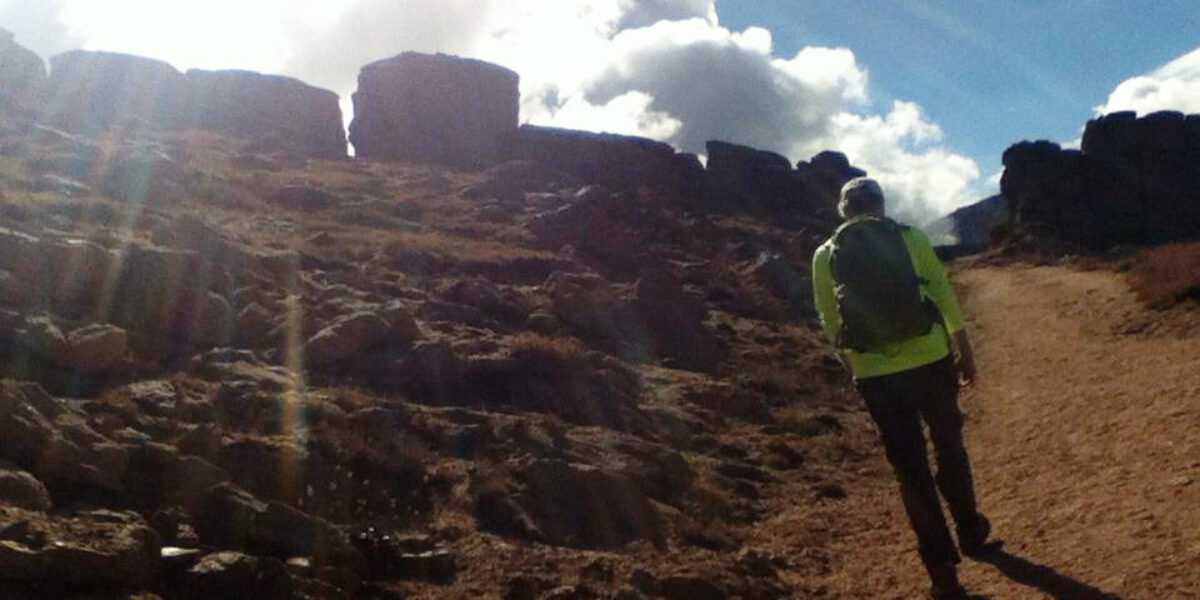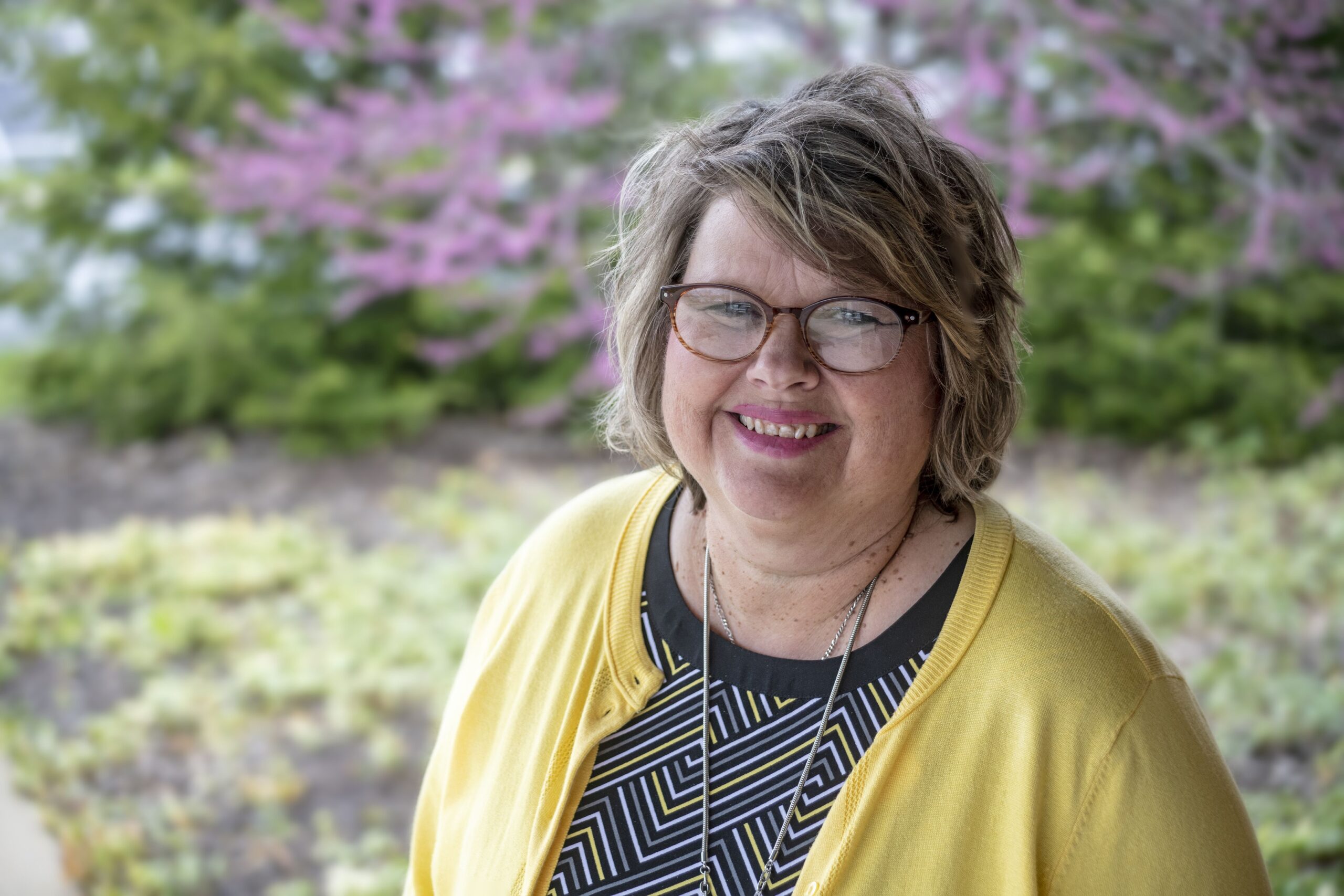Editor’s Note: Here is a roster of times and places where you will find the in-person and virtual seminars listed below.
The first chapter of the Gospel of John warms our hearts with the reality of God’s incarnational embodiment in our world: "And the Word became flesh and lived among us" John 1:14 (NRSV). God didn’t write "I love you" in the lofty blue sky with cursive white clouds. Instead, God spelled "I love you" through a baby, born in a cow’s stall, whose life would end with nail holes in his hands. Ours is a gritty — albeit grand — faith that brought God down to dust so that we could be raised up to our destiny as God’s children.
Jesus, human and divine, modeled what it means to follow in his footsteps on paths, often muddy, on paths often steep, on paths often leading to seemingly dead ends. But the paths always lead us further on in faith, from death into life.
MennoCon21 planners are following these challenging pathways in creating a churchwide gathering, including virtual and in-person elements. Mennonite Church USA Executive Board staff members have trod many uphill pathways on the way to Cincinnati, Ohio, and out of the pandemic shutdown.
Mennonite Mission Network is joining the Executive Board’s hybrid vision by providing both virtual and in-person seminars that reflect how the agency shares in God’s global mission. Below are 10 expressions of the embodiment of the healing and hope of Jesus.
Note: Seminars labeled as "adult seminar" are open to everyone. They are geared towards adults, but youth are welcome to participate.
- Adult, in-person seminar
"Future Driven Partnership; Pursuing God’s call at Mennonite Mission Network," by Mike Sherrill, executive director, Mission Network.
Sherrill says, "Mission Network is responding to the present and innovating for the future. We exist to equip and empower the church to be a holistic witness to Jesus Christ, across the street and around the world. ‘For the Spirit God gave us does not make us timid, but gives us power, love and self-discipline’ (2 Timothy 1:7 NIV). This truth draws us toward inclusion and partnership, as we put God’s love into action for people of all cultures. We are all pilgrims on a sacred journey. Together, let’s discover God’s urgent call on each of us and our church."
- Adult, in-person seminar
"Stir Up Peace: How Nonviolent Direct Action Creates Change," hosted by Sharon Norton, Mission Network’s co-director for Africa and Europe, with Jonathan (organizer and advocate) and Sarah Nahar (scholar and spiritual activist).Following Jesus means seeking God’s kingdom and righteousness. It takes deep love, creativity and faithfulness to commit to seeking change nonviolently. Nonviolent direct action is a strategic response to violence, oppression and injustice that uses tactics that don’t depend on the threat of violence to achieve justice. Seminar participants will get a taste for how to directly seek change in their communities, using tactics that carefully consider timing, context and public perception. Mennonite Mission Network will also premier the video curriculum created with the Nahars, called "Stir Up Peace: How Nonviolent Direct Action Creates Change."
- Adult, in-person seminar
"Peacemaking in Africa with Muslims and Christians," by Christy Harrison, a nurse midwife and Mission Network worker in Muslim-Christian relations; Peter Sensenig, a teacher and Mission Network worker in Muslim-Christian relations; Nehemiah Chigoji, pastor of Upland Peace Church in Upland, California, and director of the Nigeria Anabaptist Resource Center in Jos, Nigeria; and Sharon Norton, Mission Network’s co-director for Africa and Europe.
Come to hear stories of peacemaking, through sports, midwifery and day-to-day interactions between Muslims and Christians in Africa. Sensenig taught in Zanzibar and Tanzania, where students of both faiths talked about peacemaking in their own lives. Harrison interacted with Muslim women and babies in the maternity ward and in her neighborhood. Chigoji, an immigrant to the U.S. from Nigeria, travels back and forth between the two countries. He uses his intercultural skills wherever he preaches and models the gospel of peace. The seminar leaders want to challenge people to envision themselves as active participants in God’s mission of peace in their context.
- Adult, in-person seminar
"Two-Way Mission," by Jane and Jerrell Ross Richer, Mission Network workers
Many of us have had eye-opening experiences, through living in other countries or relating to people whose contexts are different from our own. How can we integrate what we have learned from one setting into another? Jane and Jerrell Ross Richer migrate between the global south and global north each year, being in the Ecuadorian rain forest with Indigenous people, as well as doing life in Goshen, Indiana. Learn how our diverse experiences in varied contexts can help us see, hear and live with authenticity wherever we may be.
Jane Ross Richer shares her thoughts about the seminar: "Diverse experiences are the gifts we receive by stepping outside of what’s comfortable. These gifts help us to see from another’s point of view. … To be the gospel, we must go beyond thinking properly about Jesus to experiencing reality like Jesus. Jesus reveals humility, intimacy and union both in his relationship with the divine and in his relationships with people from all walks of life."
- Adult, in-person seminar
Adult, in-person seminar
"Becoming Carbon Positive," by Jerrell Ross Richer, professor of economics, Goshen (Indiana) College
We live in an interconnected world, one where the actions we take affect people all over the globe. How can those of us living in the industrialized nations of the global north become pro-active when it comes to climate change? Environmental economics students at Goshen (Indiana) College are developing mechanisms to do just this. Equip yourself to become carbon positive by learning how to offset greenhouse gas emissions and take better care of God’s creation.
- Youth, in-person seminar
"Changing the Narrative: Climate What?" by Jane and Jerrell Ross Richer, Mission Network workers
"Fear not!" the angels still say. Come hear stories about Indigenous youth, who are leading the way with creative solutions in the Ecuadorian rain forest. The Cofán people in the village of Zábalo live off the land and take conservation into their own hands. Human impact on the climate has changed the current upon which the economy, human rights and the natural world rides, creating opportunities for collective action and community empowerment. Join a conversation with the Ross Richers, who serve in Ecuador, and hear how ordinary people like you are changing the world.
- Youth, in-person seminar
"I Fight Authority, Authority Always Wins," by Eric Frey Martin, recruiter and Church Relations staff member, Mission NetworkMany authority figures that we were brought up to respect — police, pastors, political leaders — sometimes turn out to be untrustworthy. Furthermore, as we dig into history, our economic systems, the lands that we live on, even the laws we must obey are fraught with injustices and often based on systems of white supremacy, classism and nationalism. What do we do with all of that? How do people of faith interact with the authorities in our lives, especially the ones that seem to be carrying out injustice? When we look at how Jesus approached power, authority and injustice in his own life, we can find hope and guidance.
- Youth in-person seminar
"What You Do Next Matters," by Eric Frey Martin and representatives from Mennonite collegesThis seminar will be for high schoolers contemplating what comes next, after graduation. We will talk about the different options youth have to connect their faith and vocation. For example, what are the advantages of a "gap year" and what could you do during that year? Our aim is to set up an inviting space where youth can hear about the many possibilities available to them through Mennonite programs and schools after high school.
- Youth in-person and virtual seminar
"Shaping our Stories: Sharing Our Stories," by Eric Frey MartinDuring this seminar, we will look at how we tell stories — not just the verbal ones that we tell our friends — but the narratives we shape around who we are and how we project ourselves to others. We will look at how these stories we tell and project shape who we are and how our stories can impact others. We will look at sharing our stories as a way of sharing God with others.
- Adult, virtual seminar
"Breaking a Mission Mold in Africa," by Joe Sawatzky, Church Relations representative for Mission Network, and panelListen in as Sawatzky interviews James Krabill, Jonathan Larson and Thomas Oduro, editors of a new book of testimonies on the more than 60-year relationship between North American Mennonites and African Initiated Churches (AICs). Learn firsthand from participants in this fascinating and path-breaking chapter in the story of Christian cross-cultural engagement.
Sawatzky says he hopes this seminar will help people see that "the Jesus-way of mission has always involved mutuality, the giving and receiving of gifts, the creation of a new humanity of justice, joy and peace in the Holy Spirit. There have been faithful approximations of this vision throughout time, of which the Mennonite/AIC history is one example. I hope that people will feel Christ’s call to know and make him known, even to the ends of the earth."
Sawatzky notes that we live in a time in which more than two-thirdsof the Christian population lives outside of Europe and North America. "This dramatic growth in the so-called ‘global south’ occurred as people began to receive Christ in their own languages and cultures, and critique their cultures through the mind of Christ," he said. "Learning about this mission dynamic at work in other societies can help the church in North America to distinguish elements, in its own context, which lead toward Christ from those which deny Christ."








